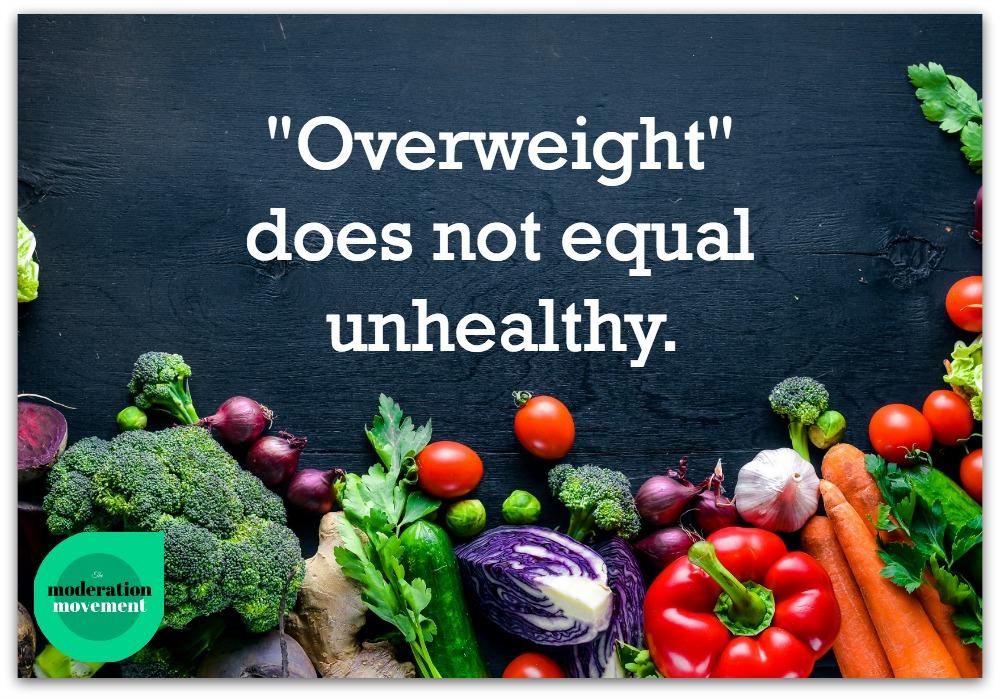“Overweight” does not equal unhealthy

Meet Emma, Emma’s weight puts her in the “overweight” range for BMI. Emma is active daily with a mix of walking, dancing and yoga, she gets adequate sleep, eats from a variety of food with a balanced nutrition intake and she rarely overeats. Her bloods are perfect with no metabolic risk factors for disease.
Emma is fit and healthy, she does not need to lose weight. However this is not the message Emma receives from our culture.
Meet Kate, Kate’s weight also puts her in the “overweight” range for BMI. Kate struggles to be active, often doesn’t get enough sleep and her eating pattern is chaotic, often missing meals, then overeating, and her food variety is fairly low. Her bloods showed elevated blood pressure and slightly high blood sugar.
Now, is it Kate’s weight that is putting her at increased risk for disease, or is it her lack of activity, poor sleep and troubled eating pattern? If we simply removed 10kg of body fat from Kate’s body, would her health improve? Highly unlikely. If Kate chooses to do something about her current health status, it’s her health behaviours and emotional health she needs to focus on, not her weight.
If we keep spouting the same old blanket statement; “being overweight increases risk for disease” then we are telling all the Emma’s of this world that they are not healthy at their current weight. For Emma to lose weight, if indeed her genetics will allow that, she would need to start restricting calories (aka dieting) and/or doing a considerable amount more activity. Given that we know diets don’t work for long-term weight loss, that they damage physical and psychological health and that they are even a risk factor for weight gain, then advice to lose weight for people like Emma is not going to reduce disease risk. If anything, it will increase this risk.
Perhaps encouraging Kate to lose weight will see an improvement in health, but this will be because she changed her health behaviours (along with addressing emotional health), not her weight. Any weight she loses, if she does, is simply a side effect of these behaviour and mental health changes.
Continuing with the “overweight increases disease risk” message also places the focus solely on the individual and fails to address more important determinants of health such as social and financial inequality, stress, lack of sleep or rest and psychological health to name a few. This message also adds to current high levels of weight stigma and body shame and is actually having the opposite of the intended effect as discussed in this article.
Unfortunately for catchy headlines, media grabs and millions of people, human health is incredibly complex and cannot be impacted on, at a population level, by simply saying “overweight = unhealthy”.
To learn more about how we can take care of our health without focusing on weight and the research behind this fact, you might like to read more about the paradigm HAES® (Health At Every Size) paradigm.
I have used quotation marks with the word overweight, as many people classed as “overweight” as per the BMI, are not above a weight that allows them to be healthy.
